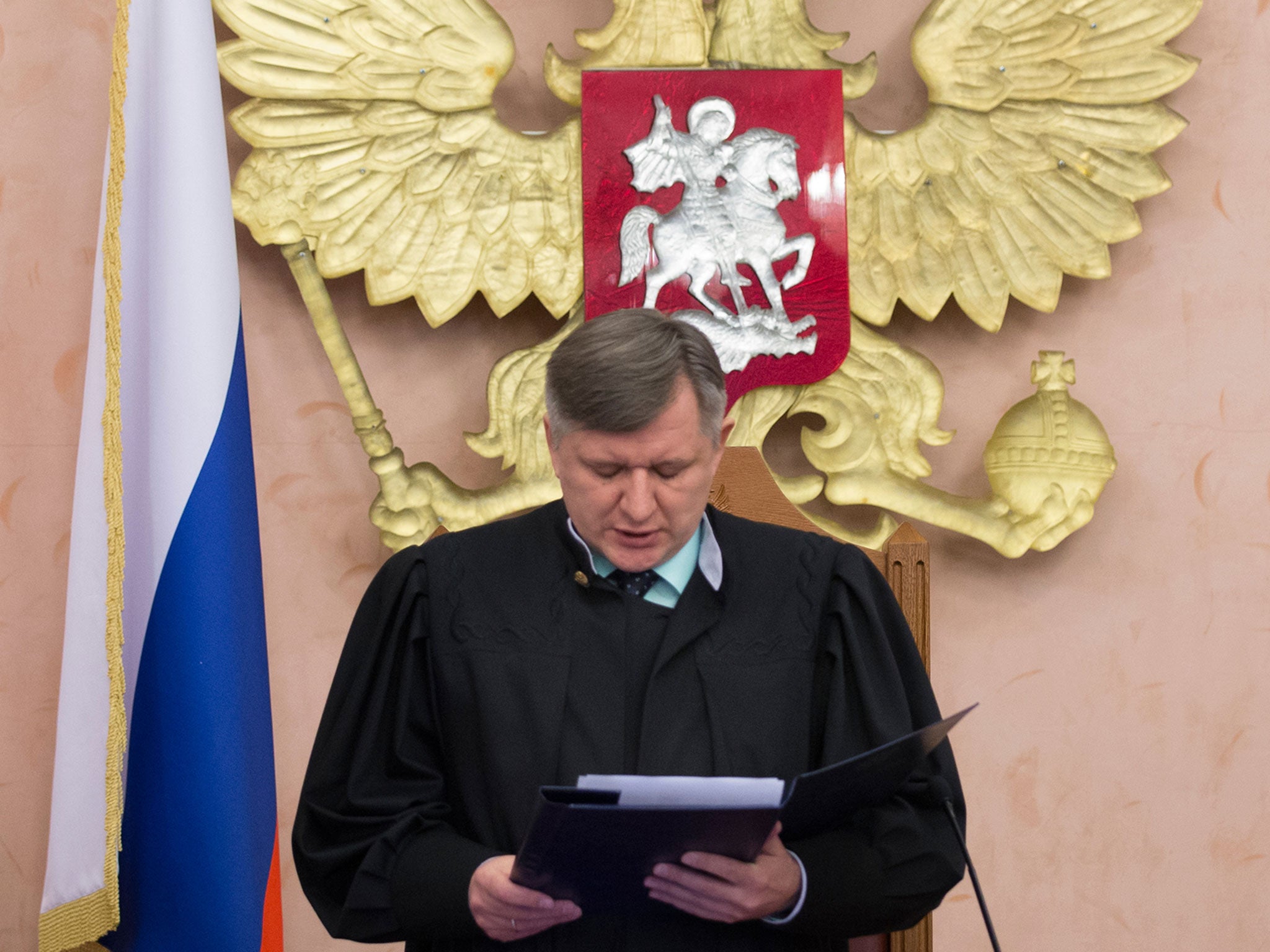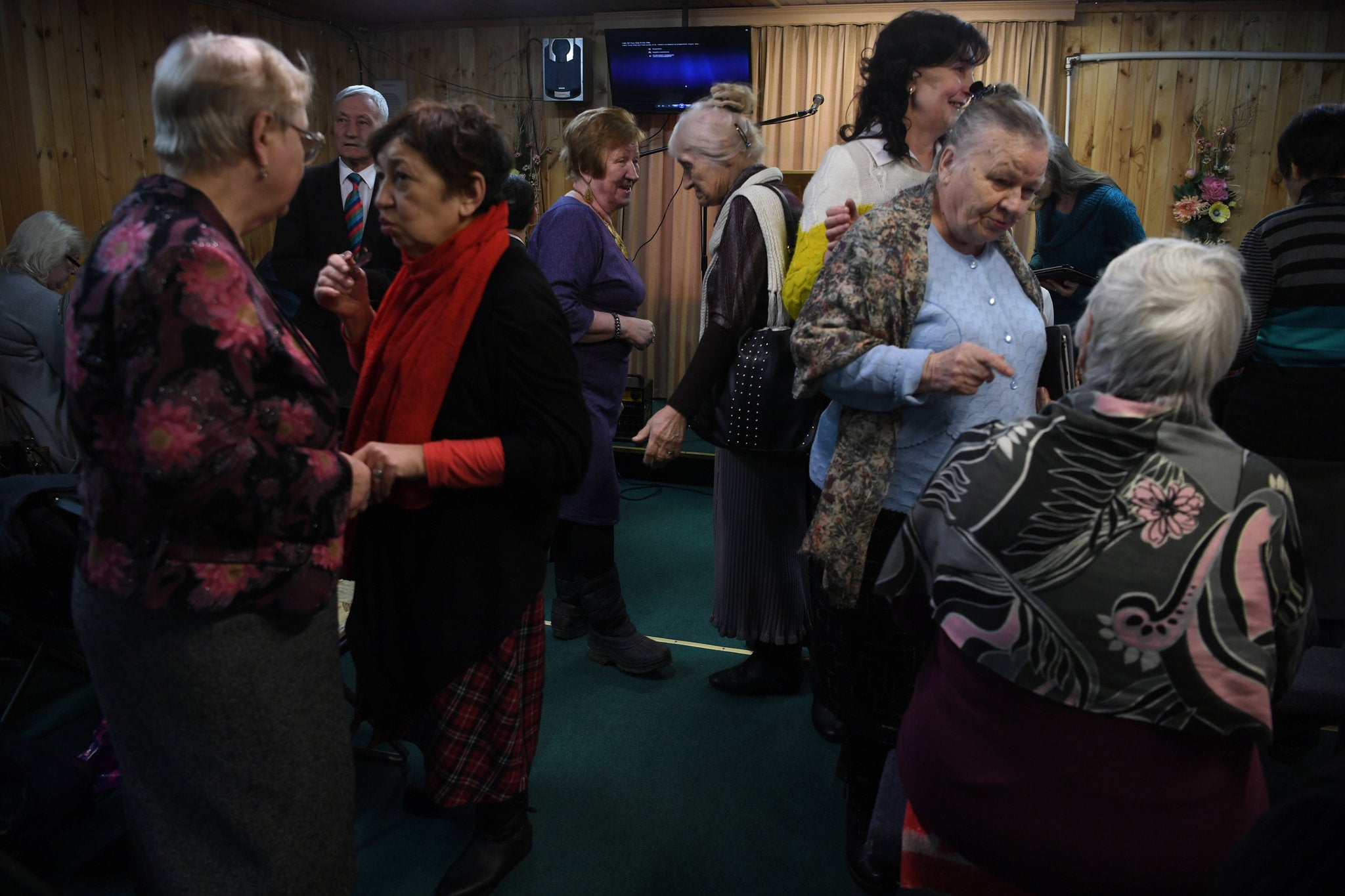British Government 'alarmed' at Russian ban on 'extremist' Jehovah's Witnesses
UK calls on Vladimir Putin to uphold freedom of religion as followers ‘criminalised’

Your support helps us to tell the story
From reproductive rights to climate change to Big Tech, The Independent is on the ground when the story is developing. Whether it's investigating the financials of Elon Musk's pro-Trump PAC or producing our latest documentary, 'The A Word', which shines a light on the American women fighting for reproductive rights, we know how important it is to parse out the facts from the messaging.
At such a critical moment in US history, we need reporters on the ground. Your donation allows us to keep sending journalists to speak to both sides of the story.
The Independent is trusted by Americans across the entire political spectrum. And unlike many other quality news outlets, we choose not to lock Americans out of our reporting and analysis with paywalls. We believe quality journalism should be available to everyone, paid for by those who can afford it.
Your support makes all the difference.The British Government says it is “alarmed” by Russia’s ban on Jehovah’s Witnesses and has launched an appeal for Vladimir Putin to uphold religious freedom.
Baroness Anelay said a ruling by the Russian Supreme Court “effectively criminalises the peaceful worship of 175,000 Russian citizens" and contravenes rights enshrined in the country’s own constitution.
“I am alarmed by the decision of Russia’s Supreme Court to recognise the Jehovah’s Witnesses as ‘extremists’,” the Foreign Office minister added. “The UK calls on the Russian government to uphold its international commitment to freedom of religion.”
The Jehovah’s Witnesses plan to appeal Thursday’s ruling, which came after six days of hearings attended by hundreds of supporters.
“We are greatly disappointed by this development and deeply concerned about how this will affect our religious activity,” said spokesman Yaroslav Sivulskiy. “We hope that our legal rights and protections as a peaceful religious group will be fully restored as soon as possible.”

The case could be taken to the European Court of Human Rights, which ruled a previous attempted ban on Jehovah’s Witnesses in Russia unlawful in 2010.
The Supreme Court was deciding on a claim lodged by the Russian ministry of justice to liquidate the group’s administrative centre near St Petersburg and 395 local organisations. Its decision will come into effect within 30 days unless an appeal is lodged, when it will be delayed until the resolution of the case.
“The Supreme Court has ruled to sustain the claim of Russia's ministry of justice and deem the 'Administrative Centre of Jehovah's Witnesses in Russia' organisation extremist, eliminate it and ban its activity in Russia,” said judge Yuri Ivanenko. “The property of the Jehovah's Witnesses organisation is to be confiscated to the state revenue.”
A lawyer for the justice ministry, Svetlana Borisova, told the court adherents “pose a threat to the rights of the citizens, public order and public security”.
Jehovah's Witnesses, who are known for door-to-door preaching and handing out literature, reject some of mainstream Christianity's core beliefs and have more than 8.3 million members around the world.
The US-based group has generated controversy for stances including its rejection of blood transfusions and opposition to military service, facing court proceedings in several countries.
Jehovah’s Witnesses first registered as a religious group in Russia in 1991 and registered again in 1999, but have been targeted repeatedly by authorities in a wide-ranging crackdown on religious freedom.
Russia changed its legal definition of extremism in 2006, removing requirements for violence or hatred but stating the “incitement of ... religious discord” as criteria, leaving the Jehovah's Witnesses with the same legal status as Isis or Nazis.
The group's international website was blocked in Russia two years ago over alleged extremism, with its Bibles banned the following year, while a local chairman was jailed for two years on charges of possessing “extremist literature” in 2010.
The Organisation for Security and Cooperation in Europe (OSCE) was among the international bodies condemning a “state sponsored campaign of harassment and mistreatment of Jehovah’s Witnesses” it said dated back to the 1990s in Russia. It listed police searches, assaults, arson attacks, vandalism, seizures and raids on places of worship, as well as the arrest of several members and criminal investigations.
The Russian Orthodox Church, which enjoys close ties with the Kremlin and the patronage of Mr Putin, is the country’s largest religion, with followers representing around 41 per cent of the population.
Other Christian denominations also make up a significant proportion, as do atheists, Muslims and spiritual movements including “neopaganism”.
Join our commenting forum
Join thought-provoking conversations, follow other Independent readers and see their replies
Comments